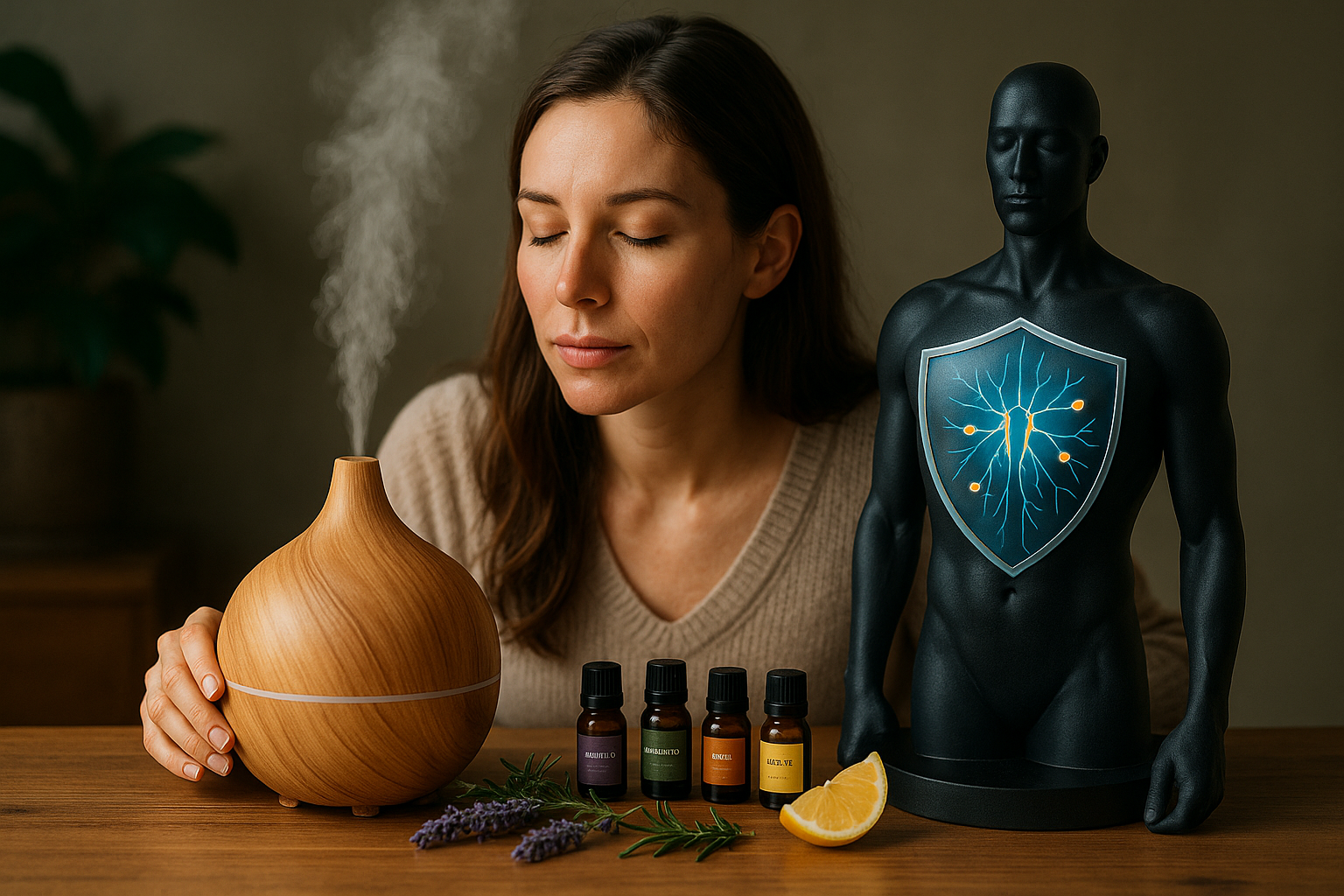"Decoding the Immune Boosting Potential of Aromatherapy"
Long before the invention of pills and potions, ancient civilizations relied on the natural world for healing. One such practice that has stood the test of time is aromatherapy. Often dismissed as unscientific and mystical, the use of aromatic plant extracts and essential oils for therapeutic benefits has its roots in ancient Egypt, China, and India. Over time, the practice evolved, integrating scientific understanding and technological advancements. Today, amidst our stressful lives and the ongoing pandemic, the potential of aromatherapy to boost immunity is gaining renewed attention.

Scent and Sensibility: Aromatherapy in Modern Times
Despite its ancient origins, aromatherapy has found its place in modern wellness trends. Recent studies show that certain essential oils can stimulate the immune system, reduce stress, and even improve sleep quality—all key factors in maintaining a robust immune response. For example, lavender oil is known to reduce cortisol levels, a stress hormone that can suppress the immune system, while tea tree oil has potent antibacterial and antiviral properties.
The Essence of Health: How Aromatherapy Works
Aromatherapy works primarily through our sense of smell. When we inhale an essential oil, its aroma molecules travel up our nose to the olfactory system, which communicates directly with our brain’s limbic system—the area responsible for emotions, memory, and certain physiological functions. This direct connection explains why a particular scent can trigger strong emotions or memories. Furthermore, some essential oils can stimulate or calm the nervous system, influencing our heart rate, stress levels, and immune function.
The Fragrant Path: Advantages and Precautions
Unlike many other wellness strategies, aromatherapy is non-invasive and easy to incorporate into daily life. You can add oils to a bath, diffuse them in your home, or apply them to your skin (with a carrier oil to prevent irritation). However, it’s important to remember that while beneficial, aromatherapy can’t replace a balanced diet, regular exercise, and adequate sleep.
Quick Immunity Boosters: Aromatic Allies
-
Eucalyptus Oil: Known for its respiratory benefits, it may also stimulate immune response.
-
Lemon Oil: Its uplifting scent reduces stress, and it has antimicrobial properties.
-
Frankincense Oil: This ancient oil is believed to enhance immunity and reduce inflammation.
-
Peppermint Oil: Refreshing and invigorating, it can improve mental clarity and boost mood.
-
Rosemary Oil: It can stimulate the immune system and improve respiratory health.
Inhale Health: Concluding Thoughts
Aromatherapy, once regarded as pseudoscience, is slowly gaining credibility as research reveals its potential to enhance well-being and immunity. While it’s not a magic bullet for health, it’s an accessible and enjoyable addition to your wellness toolkit. Remember, the journey to health is a marathon, not a sprint—every step, no matter how small, counts. In the end, it’s about creating a lifestyle that nurtures your body, calms your mind, and uplifts your spirit—and maybe, that includes the invigorating scent of eucalyptus or the soothing aroma of lavender.




